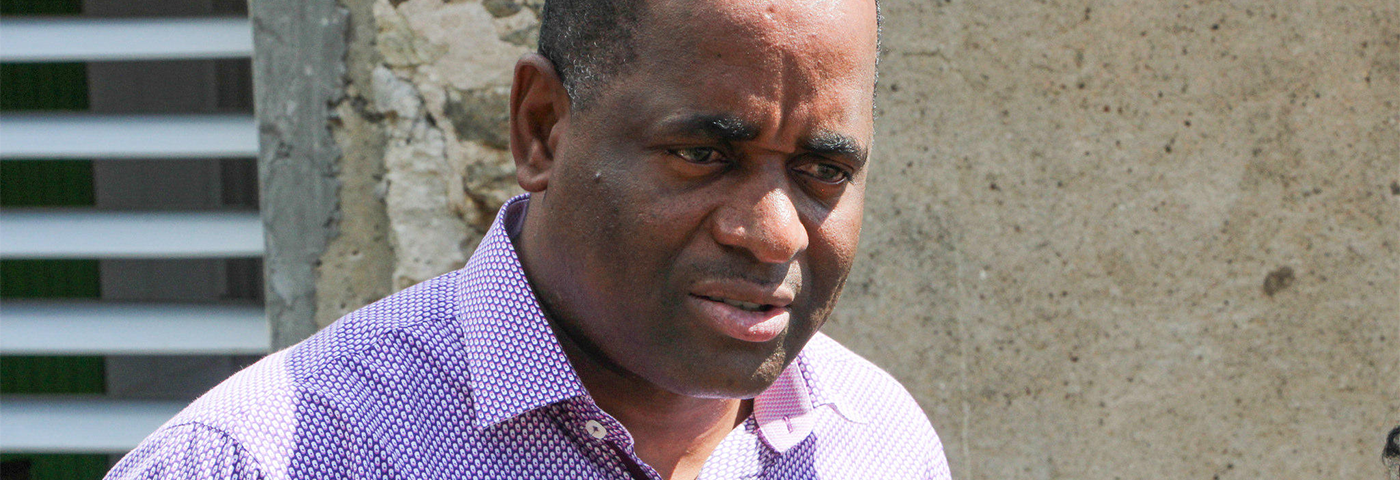Just two months ago, on September 18th, Hurricane Maria hit the Caribbean island of Dominica. Minutes before, this was the Nature Island, a tropical paradise of 365 river and pristine rainforest. It was home to 195 species of fern, 75 kinds of orchid, 50 types of butterflies and 176 species of bird. A few hours later, most of that was gone.
These days our attention spans shift faster than a force five storm. Dominica may have made the headlines for a day or so, but after that, for most, it is just an absence. There was no Dominica stand at World Travel Market this year. Conversations around the halls were mostly about how to deal with too many tourists, not what you do when your tourism sector – and the infrastructure and natural world on which it depends – has been wiped out.
So what has been happening on Dominica in the weeks since? How is the island recovering, considering 95 per cent of the country remains without electricity, and 90 per cent of buildings were either damaged or destroyed?
Something pretty remarkable.
We talk a lot about the calibre of world leaders. Some favour Trudeau, others Merkel. In the last few weeks attention has shifted to another remote island nation, New Zealand, and the election of Jacinta Ardern. For his response to Hurricane Maria, I think we should add Dominica’s Roosevelt Skerrit to this list.
Last week saw the close of the annual Climate Conference, COP, which this year took place, as COP 22 in Bonn. Prime Minister Skerrit spoke last Thursday. All of his speech deserves repeating, but the following passages above all should serve as a wake up call to anyone still not putting climate change at the centre of their plans.
“How many of the countries that continue to pollute the planet had to suffer a loss of two hundred and twenty-four per cent of their GDP this year?,” asked Skerrit. “To ensure our very existence the world must do better. We argued at COP 21 for one degrees to stay alive – a commitment was made to two degrees but by all assessments we will not even achieve that goal.
“How many of our vulnerable small island developing states have been able to access green climate funds to make us more climate resilient? What mechanism is there for us to be able to access emergency funds when facing a disaster like that caused by Maria?
“We have been put on the front line by others. We were the guardians of nature. We have not contributed to global warming. Sixty per cent of Dominica is covered by protected rainforests and has been so long before climate change.
“Our marine environment is similarly protected. We are on the front line and this is not a metaphorical war, or a metaphorical line. it is one in which we bury the dead, console the grieving, nurse our wounds and call out for reinforcements.”
The most remarkable part of his speech is the vision he expresses for what the island does next. “We have publicly committed to the international community that we will rebuild ourselves as the first fully climate resilient nation in the Anthropocene,” said Skerrit. “Our small island will shine the torch for others to follow.”
This vision is already supported by the United Nations, which recently warned the rest of the world that Dominica is unlikely to remain an exception for long, considering recent research by the UN World Meteorological Organization has found that natural disasters have tripled, while the economic damage caused by them has increased five-fold.
Which brings me to the global tourism industry, and what we can do. Prime Minister Skerrit concludes his speech with a call to the international community to “partner with us to build a truly climate resilient nation a nation adapted to the new reality of fiercer, more frequent and more ferocious storms”.
The DMO Discover Dominica has just launched dominicaupdate.com, which is reporting on progress to get the country’s tourism industry back up and running. Currently providing accommodation to relief workers, the iconic Fort Young Hotel will be partially open by January, with general manager Marvlyn James making clear that: “Tourists are the seeds that are needed to restore Dominica to its natural grandeur and help it blossom once again.” Cobra Tours and Cool Breeze Tours are already offering voluntourism packages to restore the Waitukubuli trail, the Caribbean’s longest walking trail. Wherever possible people working in tourism around the world can support, promote and share these stories, ensuring that Dominica’s voice is heard far and wide.
Tourism can help Dominica become the first climate resilient nation. We can share best practice in sustainability from our hotels, tour companies and destinations. We can look beyond our own sector for answers that we can implement. We can use tourism’s unique global network to connect people to one another. Skerrit’s vision of a climate resilient nation means the island offers the fertile volcanic soil for these ideas to grow.
We won’t just be doing this for Dominica either. The lessons that will be learned as the island rebuilds are ones we will need all across the world in the years to come. And we don’t want to have to start from scratch each time this happens again.


